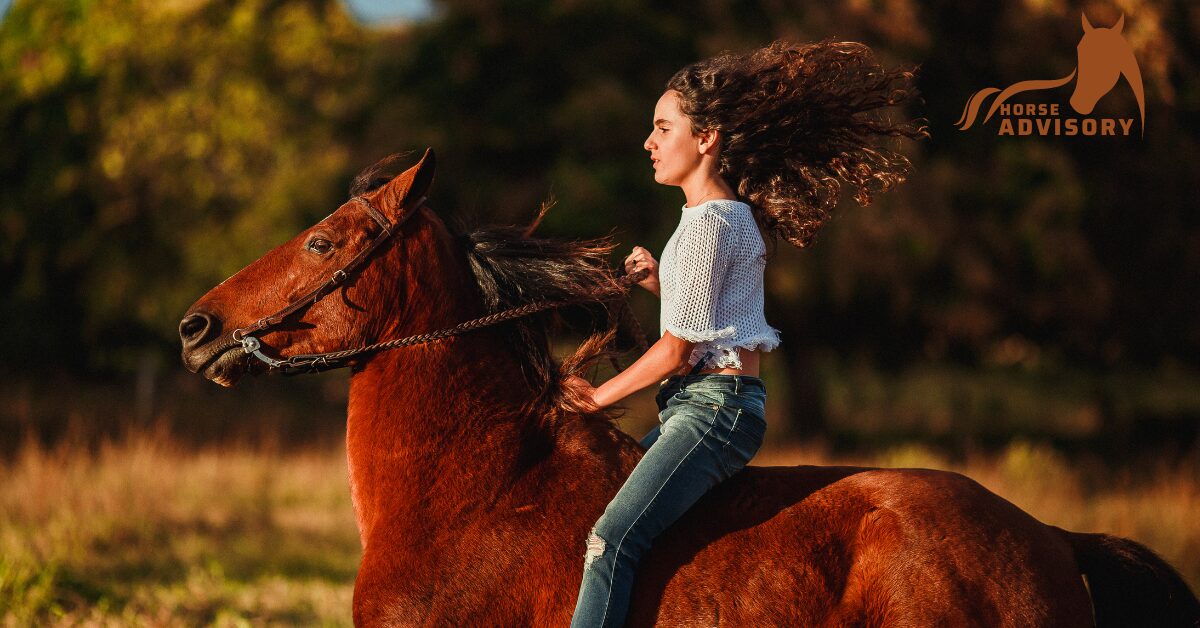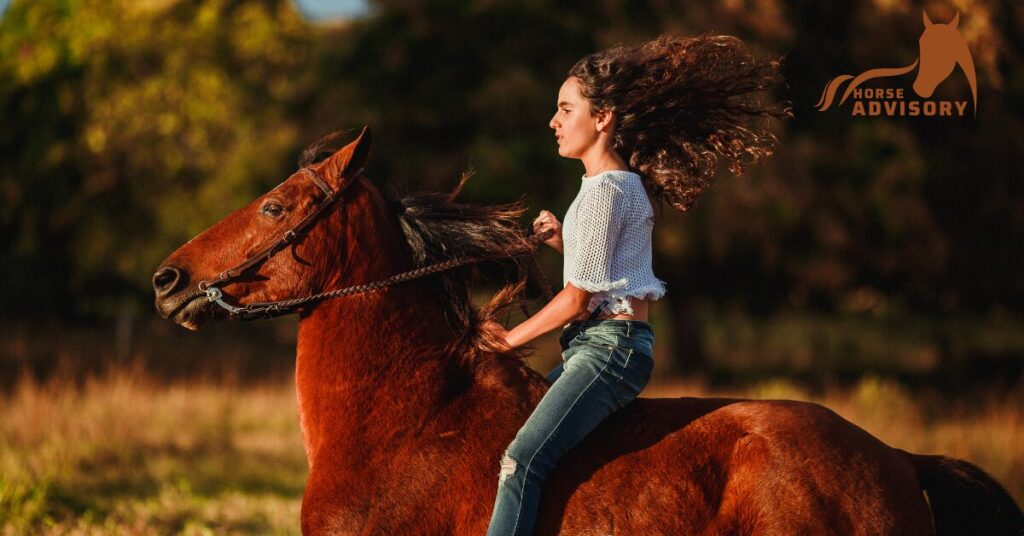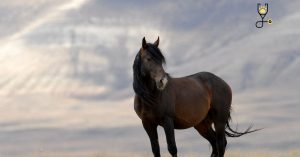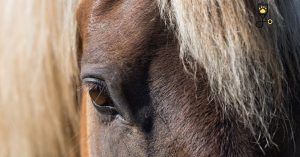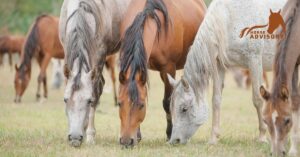Trail riding is an exhilarating equestrian activity that allows riders to appreciate the great outdoors from a unique perspective. Choosing the right horse breed for trail riding is essential to ensure a safe and enjoyable experience.
Understanding What Makes a Good Trail Horse
The ideal trail horse possesses a calm temperament, good stamina, sure-footedness, and adaptability. These traits enable the horse to navigate various terrains with ease and maintain a steady pace throughout the ride.
Calm Temperament
A trail horse’s temperament is a crucial factor in determining how well it handles the unpredictability of the trail. A calm and patient horse is less likely to startle at sudden noises or movements, making for safer, more relaxed rides. This calmness often comes from a combination of natural disposition and experience. Horses that have been exposed to a variety of situations and environments are typically more composed when faced with new or unexpected circumstances. Thus, a horse with a calm temperament is not only safer but also more enjoyable to ride, as riders can focus on the beauty of the trail rather than managing a nervous horse.
Stamina and Sure-Footedness
Stamina and sure-footedness go hand-in-hand when it comes to trail riding. Good stamina is essential as trail rides can last anywhere from an hour to several days. The horse needs to maintain its energy levels throughout the ride, trekking up hills, across streams, and over uneven terrain without becoming overly tired. This is where sure-footedness comes in. A horse that is confident in its footing can navigate different terrains smoothly and efficiently, conserving energy. Sure-footed horses are less likely to stumble or slip, reducing the risk of injury to both themselves and their rider.
Adaptability
Finally, adaptability is a key trait of a good trail horse. Trails can vary greatly, from wide, flat paths to narrow, steep inclines, and weather conditions can change rapidly. A horse that can adapt to these changes, adjusting its gait or speed as necessary, is invaluable on the trail. Additionally, an adaptable horse can handle changes in group dynamics, such as riding with unfamiliar horses or being asked to lead or follow. This flexibility makes for a more enjoyable trail ride and a horse that is a pleasure to work with in many different scenarios.
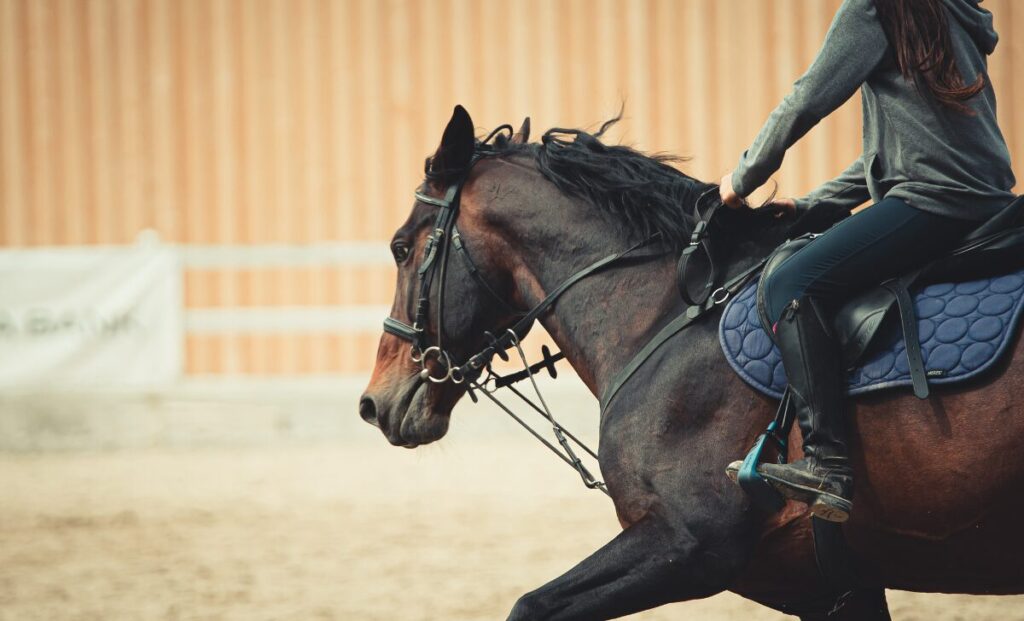
Ideal Horse Breeds for Trail Riding
Quarter Horses
The American Quarter Horse, named for its exceptional speed at short distances (specifically a quarter of a mile), is one of the most popular and oldest horse breeds in America. Known for their muscular build, compact body, broad chest, and powerful hindquarters, these horses are built for quick bursts of speed, agility, and hard work. This physical prowess makes them adept at navigating various terrains encountered on trail rides.
Beyond their physical attributes, Quarter Horses possess an even temperament that’s particularly suited to trail riding. They are typically calm, easy-going, and docile, making them an excellent partner for riders of all experience levels. Their inherent patience and gentle nature can be especially beneficial for novice riders still mastering their skills. This breed is also known for its intelligence and willingness to learn, which further enhances their suitability as trail horses.
Versatility is another defining characteristic of Quarter Horses. They excel in various equestrian disciplines, from rodeo events to English-style riding competitions. This adaptability extends to trail riding as well. Whether you’re embarking on a relaxed, leisurely ride or navigating more challenging terrains, you can count on a Quarter Horse to be a reliable and capable companion.
Arabian Horses
Arabian horses are one of the oldest horse breeds in the world, tracing back to the Arabian Peninsula’s desert regions. Known for their distinctive dish-faced profile, high tail carriage, and graceful stride, Arabian horses are as aesthetically pleasing as they are athletic. Their origin in harsh desert climates has equipped them with superior endurance, making them ideal for long-distance trail rides.
Arabians are not just physically adept for trail riding; they also possess a spirit and intelligence that make them excellent trail partners. They are known for their alertness and sensitivity to their rider’s cues. This responsiveness, coupled with their agility, allows them to handle varying terrains with finesse. Whether you’re navigating rocky paths or crossing streams, an Arabian horse can tackle these challenges with ease.
Despite their spirited nature, Arabian horses are generally good-natured and eager to please. They form strong bonds with their human counterparts, making them loyal and reliable partners on the trail. Their combination of endurance, agility, and responsive nature makes Arabian horses a popular choice among experienced trail riders seeking a horse that can offer both a challenge and a rewarding riding experience.
Tennessee Walking Horses
The Tennessee Walking Horse, also known as the Tennessee Walker, is a breed that stands out for its unique four-beat “running walk.” This distinctive gait offers an exceptionally smooth ride, making these horses a favorite among trail riders and individuals with back problems. Originating in middle Tennessee, this breed is a composition of Narragansett and other breeds, which contributed to their unique gait and hardiness.
Physically, Tennessee Walking Horses are known for their elegance and strength. Averaging 15.2 hands, they possess a long, graceful neck, short back, well-built hindquarters, sloping shoulders, slender but strong legs, and sound feet. Their heads are small and refined, with delicate ears and large eyes, adding to their overall aesthetic appeal.
Beyond their physical characteristics and distinctive gait, Tennessee Walkers are known for their calm and docile nature. These horses generally have a disposition that is eager to please, which, combined with their smooth gait, makes them a pleasure to ride. Whether you’re a seasoned equestrian or a novice rider, the Tennessee Walking Horse offers a blend of comfort, beauty, and gentle temperament that can enhance your riding experience.
Icelandic Horses
Icelandic horses, despite their smaller size, are a powerhouse breed renowned for their durability and resilience. Originating in Iceland, these horses have adapted to harsh weather conditions and challenging landscapes over centuries, making them excellent trail companions. Their muscular build and robust constitution enable them to traverse tough terrains with relative ease.
One of the most fascinating characteristics of Icelandic horses is their unique gaits – the tölt and the flying pace. The tölt is a smooth, four-beat gait that offers an extremely comfortable ride, even over long distances. The flying pace, on the other hand, is a fast two-beat lateral gait, where the horse’s same side legs move together. This gait is thrilling yet smooth, providing an exhilarating experience for riders.
Icelandic horses are also recognized for their friendly and sociable nature. They are intelligent, easy to train, and known for their willingness to cooperate. These traits, combined with their stamina and distinctive gaits, make Icelandic horses an excellent choice for both novice and experienced trail riders.
Appaloosa Horses
Appaloosa horses, easily recognizable by their unique spotted coats, are another breed well-suited for trail riding. Originating from the Nez Perce Native American tribe in the Pacific Northwest, Appaloosas were bred for their strength, endurance, and sure-footedness, qualities that make them ideal for navigating rugged landscapes.
Physically, Appaloosas are medium-sized horses known for their strong legs and hard, striped hooves. These attributes contribute to their excellent balance and agility on trails. They are also known for their adaptability, able to handle a variety of climates and terrain types with ease.
In terms of temperament, Appaloosas are typically calm, intelligent, and independent. They tend to be very trainable and willing to work, but they also have a bit of a playful side, adding an extra layer of enjoyment to the riding experience. These qualities, along with their distinctive appearance and hardy nature, make Appaloosas a popular choice for trail riders around the world.
Factors to Consider When Choosing a Horse for Trail Riding
Trail riding can be a rewarding experience, but it requires a horse that is physically fit, mentally prepared, and well-suited to this type of activity. While breed characteristics can provide a general idea of what to expect, individual factors such as personality, training, and health are also crucial. Here are some key considerations when choosing a horse for trail riding.
1. Temperament and Personality
The horse’s temperament is one of the most important factors to consider. A good trail horse should be calm, willing, and adaptable. They should be able to handle unexpected situations without panicking and respond well to the rider’s cues. Observing the horse’s behavior in various situations can give you a better idea of its temperament.
2. Training and Experience
A horse’s training and experience can significantly impact its suitability for trail riding. A well-trained horse should be responsive to commands, comfortable with being saddled and ridden, and familiar with basic maneuvers like walking, trotting, and cantering. Experience on different terrains and in various weather conditions can also be beneficial.
3. Physical Health and Fitness
The physical health and fitness of the horse are crucial. Trail riding can be physically demanding, requiring strength, endurance, and soundness. A pre-purchase veterinary exam can provide valuable insights into the horse’s health and identify any potential issues that could impact its ability to perform as a trail horse.
4. Adaptability to Different Terrains
The horse’s adaptability to different terrains is another key factor to consider. A good trail horse should be sure-footed and able to handle various types of terrain, from rocky paths to muddy trails. It can be helpful to test the horse on different surfaces before making your decision.
5. Reaction to Unfamiliar Situations
Lastly, observe how the horse reacts to unfamiliar situations. Trail riding often involves encountering wildlife, crossing water, or dealing with unexpected obstacles. A suitable trail horse should be able to handle these situations calmly and confidently.
Conclusion
Finding the ideal horse for trail riding involves considering both breed characteristics and individual traits. Whether you’re drawn to the versatility of Quarter Horses, the endurance of Arabians, or the unique gaits of Icelandic horses, remember that patience and careful evaluation are key to finding the perfect trail companion. Happy riding!
